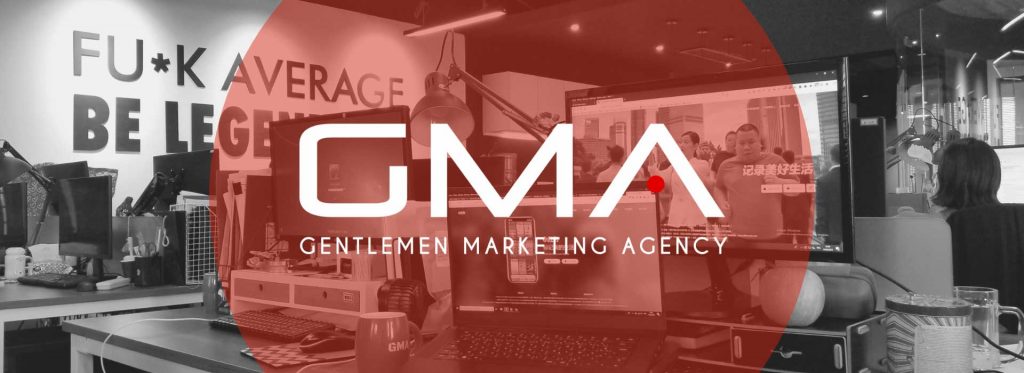Not only is organizing sales important during market entry, but also when expanding operations in Vietnam. The core questions are: “How can I get my product onto the market?” How can I bring more products to the market? In this article, we’ll discuss the sales channels that can be used to import or distribute products in Vietnam.
Although technically it is possible to sell directly to Vietnamese customers without intermediaries, this does not seem to be the case. Because of the lack of trust and networks in Vietnam, it is difficult to identify and contact “end customers”. Foreign companies will struggle to maintain a customer even if they do find it. Many direct sales projects are initiated by Vietnamese parties looking for high-value investments, such as power plant turbines, and complex products. However, this cannot be considered a “structured” market entry strategy. It is a largely “ad-hoc” business.
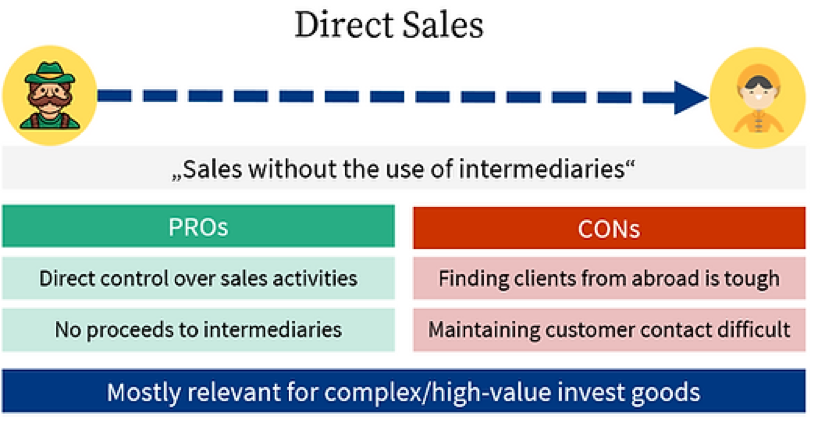
This sales channel is where the agent can access the contacts and make the sale. The sales contract between the Vietnamese customer and foreign supplier will however be concluded directly. Furthermore, the exporter will also often provide maintenance and service.
The agent will charge a commission fee for her services. Another problem is that the primary contact will most likely stay with the agent so foreign suppliers cannot have much control over clients . For complex investment goods, trade agents are often used, e.g. machinery. Trade agents can be either private contractors or companies.
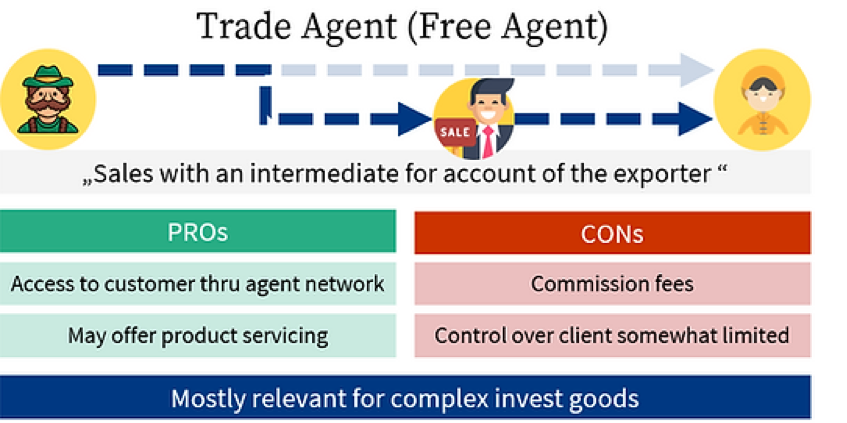
Wholesalers will purchase the product from overseas and then resell it in Vietnam. This is why it is sometimes called “reseller”. This channel applies for all commodities. We have seen many manufacturers working with wholesalers. Wholesalers can provide market access for all aspects of the business, including contracting, sales, importation, billing, maintenance, and service. The wholesaler can also keep stocks for commodities. This solution may be convenient for the supplier, but it will eat up margins and limit customer contact.
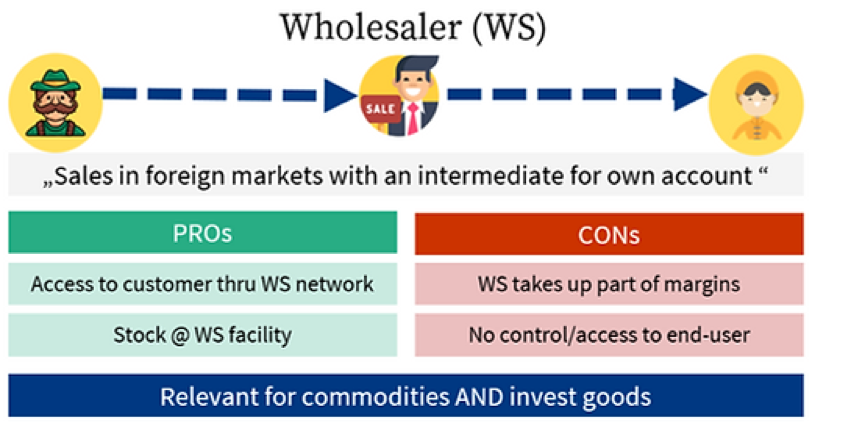
This refers to a distributor who has access to multiple markets. These “multinational distributors” can be of two kinds. On one hand, you have Melchers, DKSH, or Mitsui trading houses. These houses have their own subsidiaries in target markets like Vietnam. There are also distributors in Bangkok and Singapore who work with agents from each market. These “multinational” distributors can handle different industries through either their own subsidiaries or a network of distributors. This is especially a convenient for small companies that have limited export capabilities. These partners can also be useful if the exporter has technology that serves multiple sectors. This case is often challenging for local distributors because they are focused on specific industries. Access to the market this way is difficult because there are very few multinational distributors. Working with such a partner also limits the company’s exposure to its target markets. This strategy may be effective for certain enterprises, but it is not a good choice for all. Many others will want more control over their customer base.
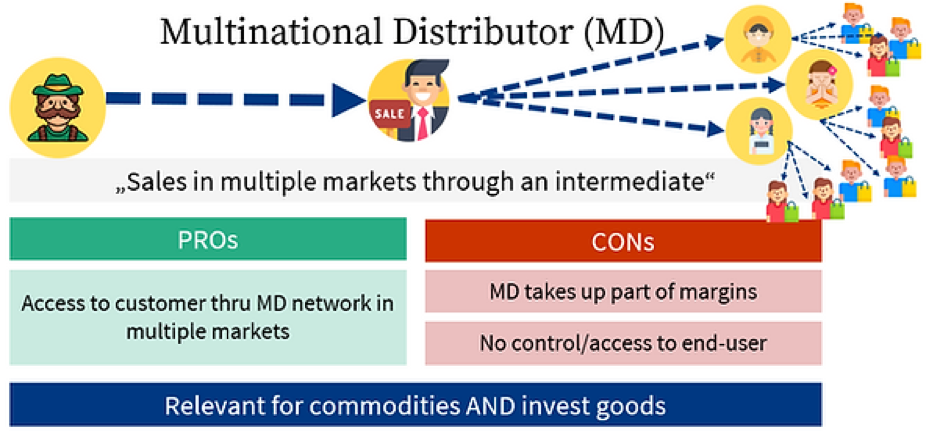
This channel is similar to that of a freelance trade agent (see above). A sales agent is someone who works in collaboration with distributor partners. They often create and implement marketing plans, engage with cold calling and strengthen the exporter’s market presence in Vietnam. You can hire sales agents as independent contractors or through a distributor. Sometimes, an exporter will finance a distributor’s team member to work exclusively on the exporter’s products.
Vietnam can establish a sales subsidiary if sales volumes allow or other factors, such as company strategy and servicing needs, mandate it. It is possible for the subsidiary of an existing company to arrange sales, contract, import and invoice, and also do maintenance/service. However, it can be costly for establishment and ongoing operation. Investors who are yet to invest in sales subsidiaries should be aware that they often only partially engage in direct business with local B2B customers because they lack the required networks and compliance is a significant issue with local customers. Therefore, many international sales subsidiaries do business directly with foreign investors, and then work through distributors to access local clients.
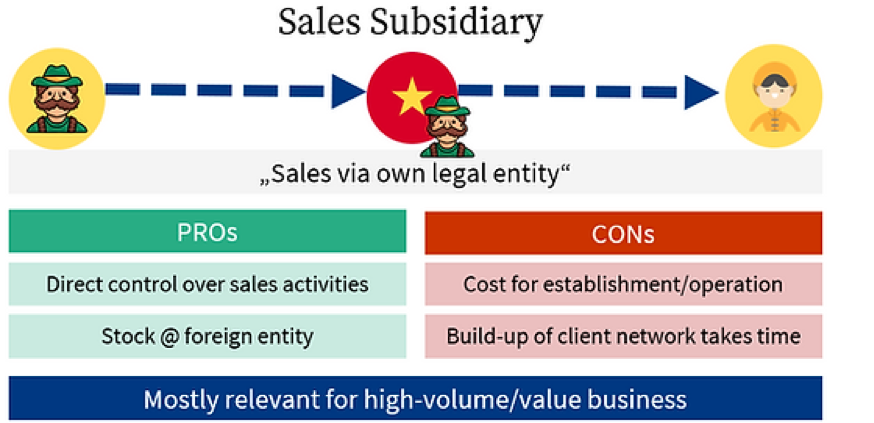
There are many sales channels available in Vietnam. Many businesses start with an ad-hoc business and sell directly to Vietnam. They realize their potential market in Vietnam and start a business. The best outcome is usually achieved through cooperation with a distributor. A local partner can – in the best case scenario – increase turnover very quickly because she will have access to her existing customer base. Whether you are looking to establish a Vietnamese subsidiary or work with a partner, opening up Vietnam’s market can bring significant revenue to foreign companies.
It can be difficult to find and contact potential distributors. Let us help you!
